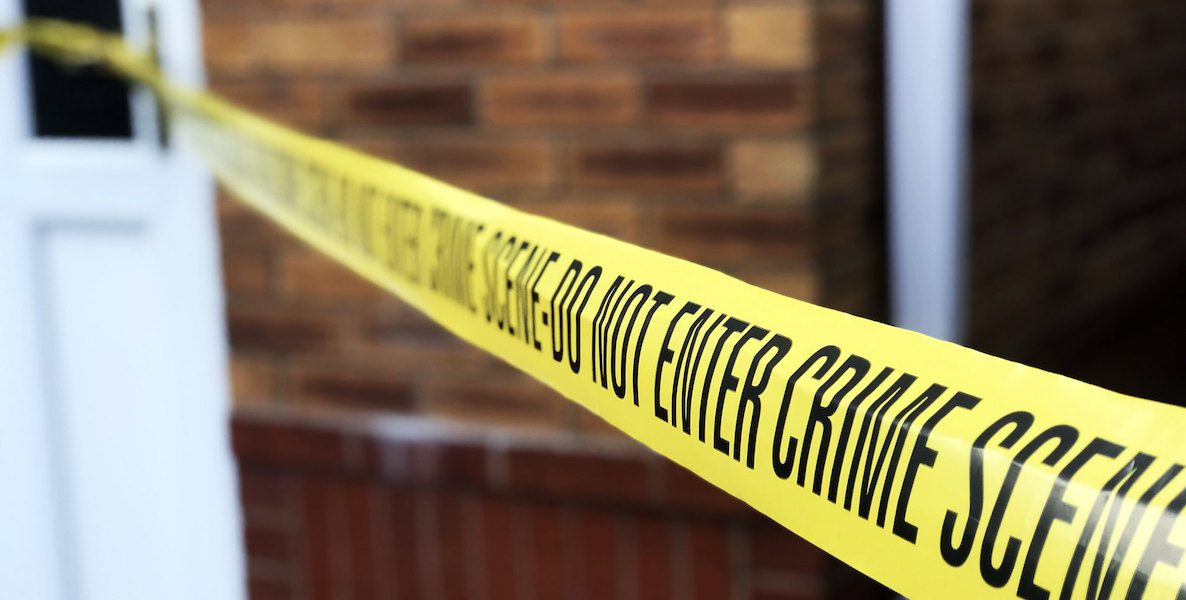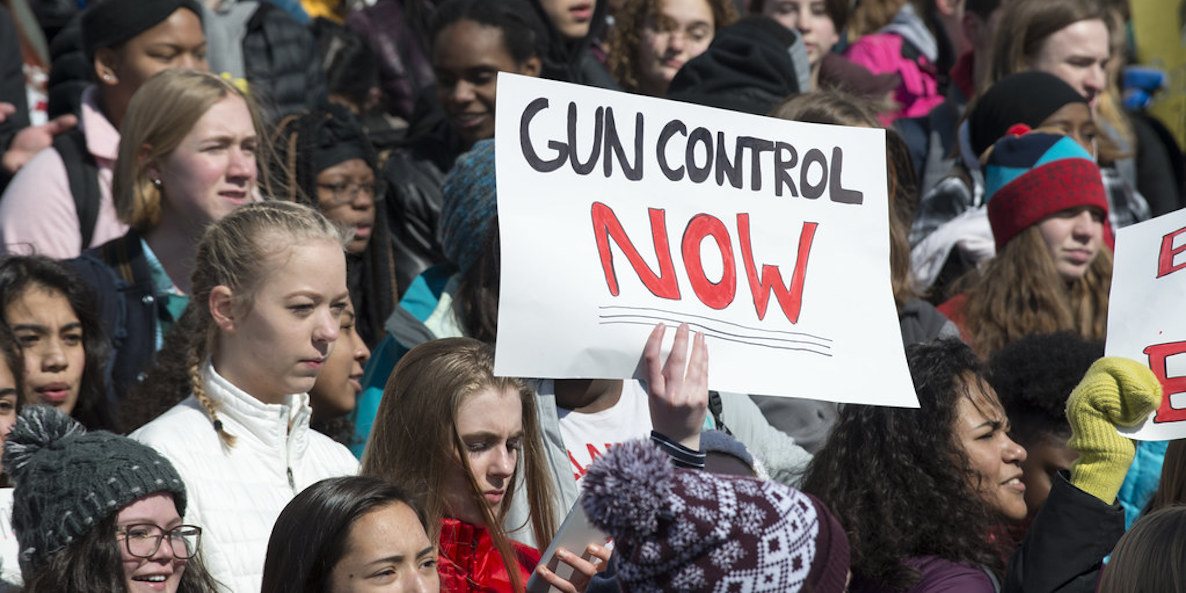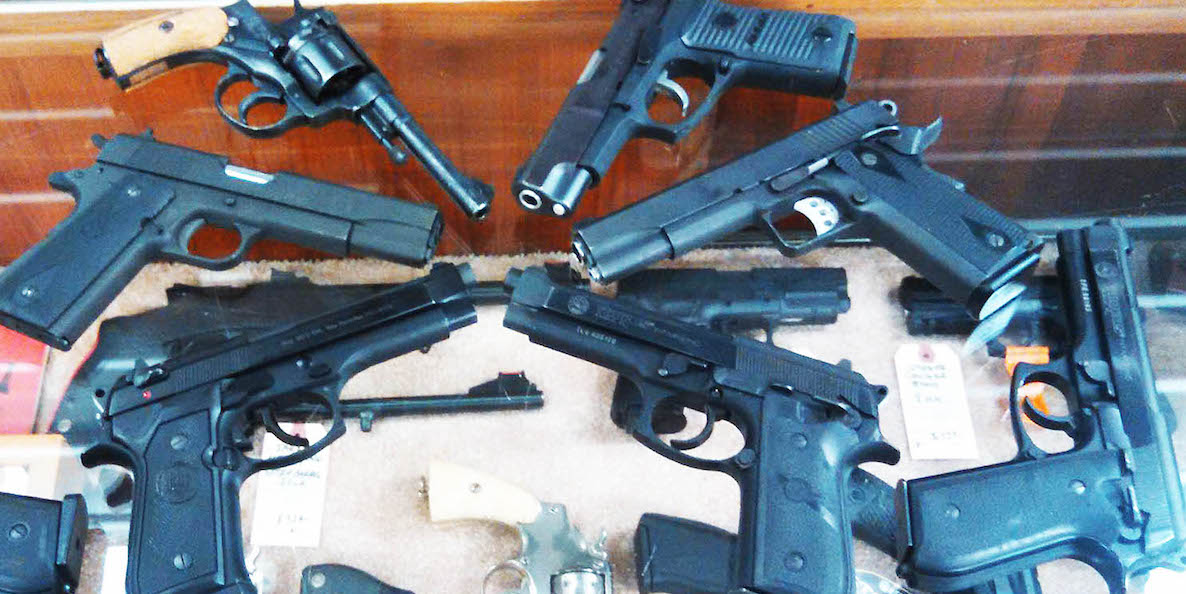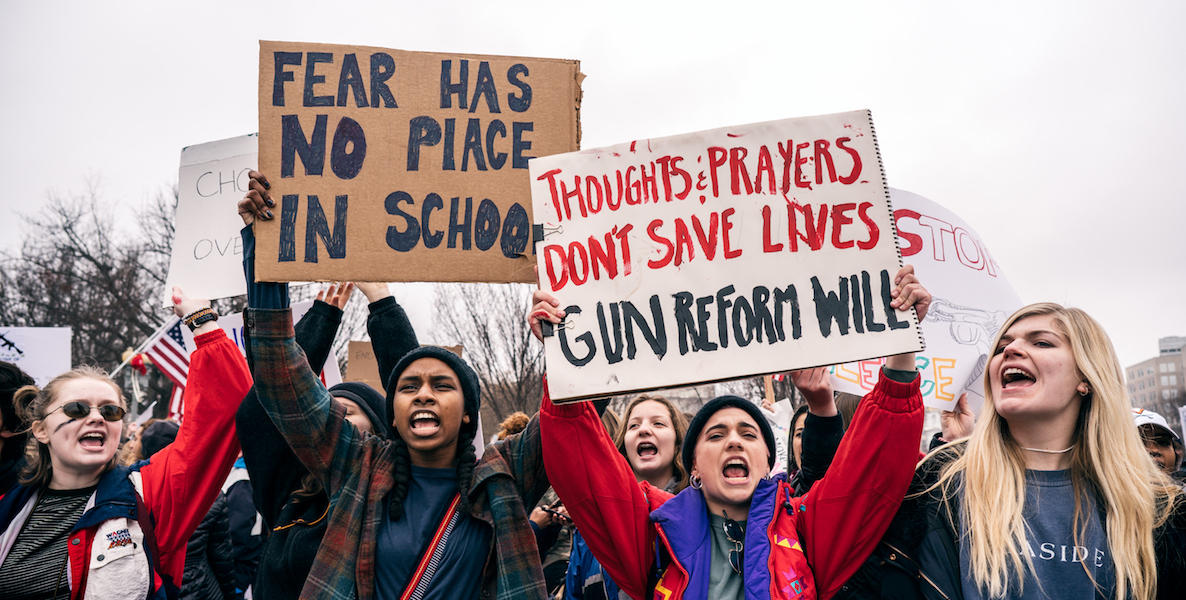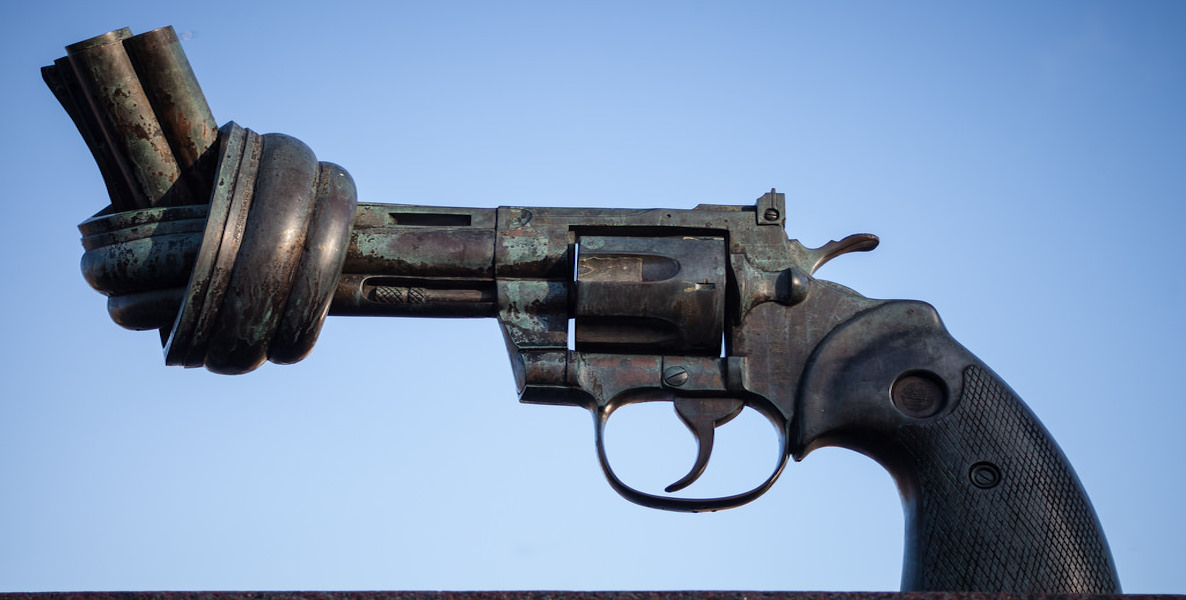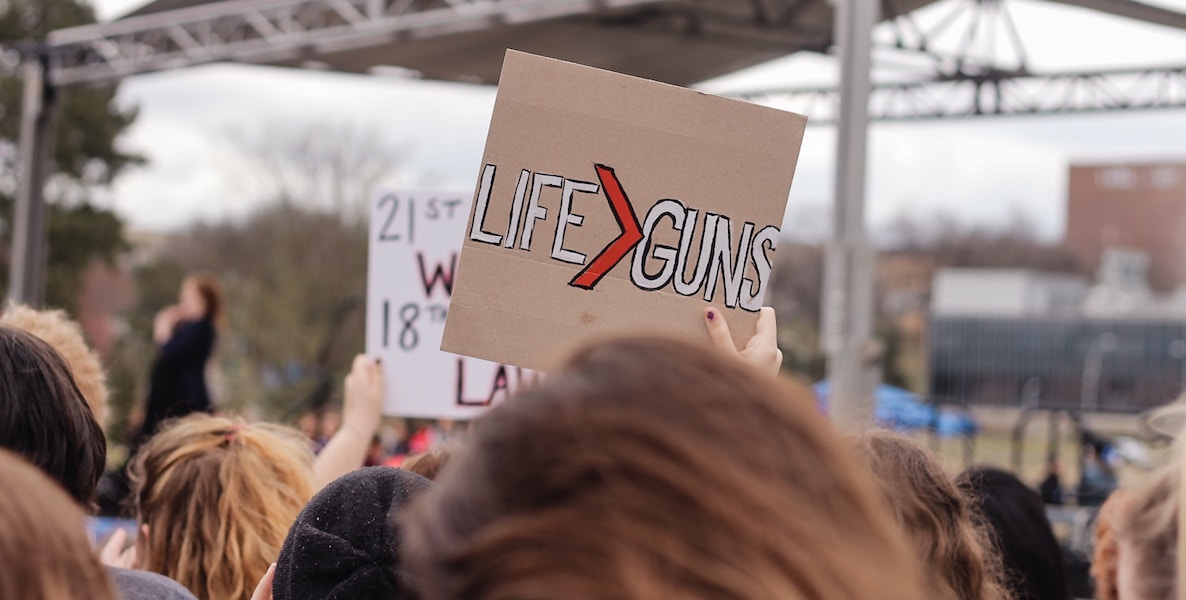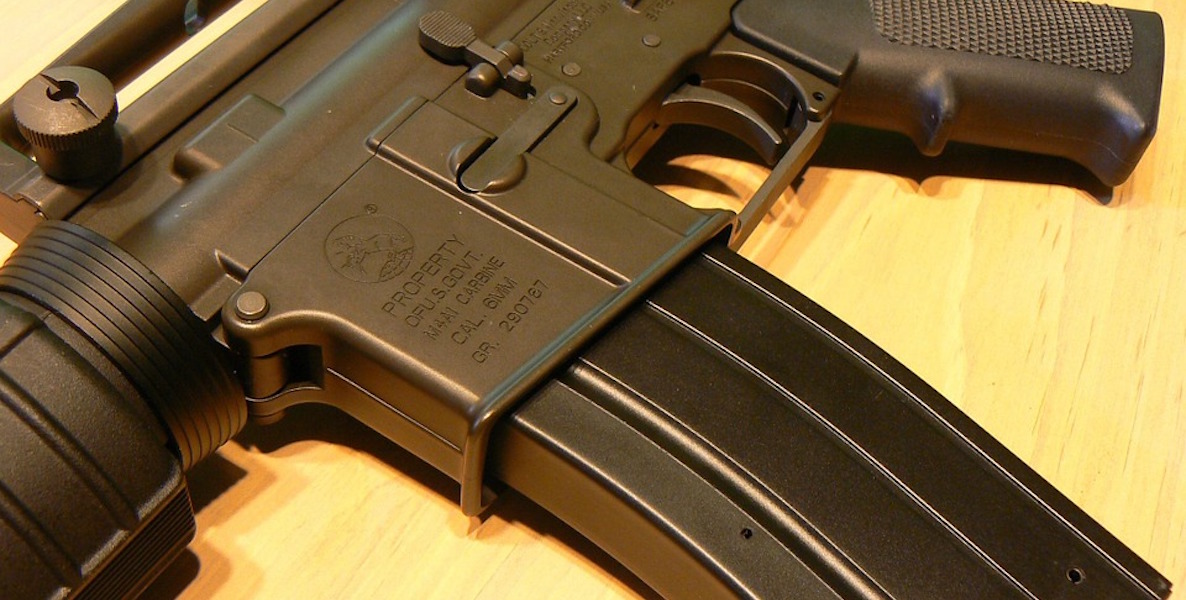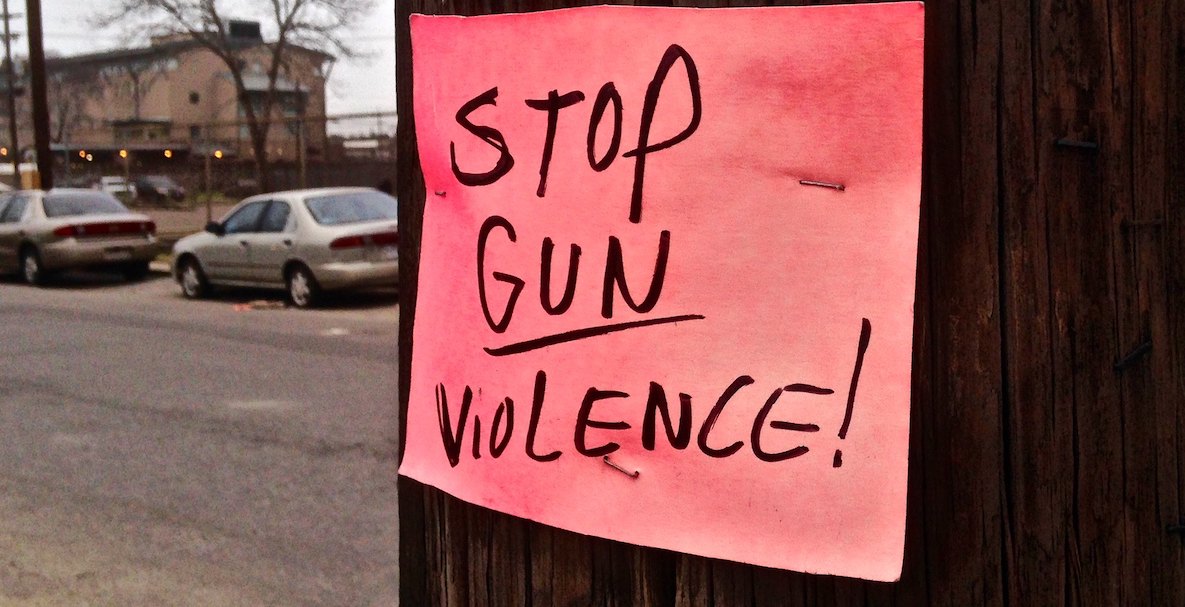State House Representative Todd Stephens, a Montgomery County Republican, thought he knew a lot about guns. He was, after all, a prosecutor for 10 years, three of those assigned to the U.S. Attorney Office’s firearms unit. He spent the first several years of his tenure as a legislator focused on preventing gun violence.

Prefer the audio version of this story? Listen to this article in CitizenCast below:

![]() But it wasn’t until the shooting in Parkland, Florida, that Stephens learned the truth about gun deaths in America: Two-thirds are suicide, with the group most at risk being middle aged white men in rural areas—like most of Pennsylvania. The last one-third is what we experience most here in Philadelphia, everyday street violence that mostly affects young men of color.
But it wasn’t until the shooting in Parkland, Florida, that Stephens learned the truth about gun deaths in America: Two-thirds are suicide, with the group most at risk being middle aged white men in rural areas—like most of Pennsylvania. The last one-third is what we experience most here in Philadelphia, everyday street violence that mostly affects young men of color.
“There is a gross underappreciation for how many suicides are occurring,” says Stephens. “People just don’t understand the scope of the problem.”
Stephens is not a criminal justice reformer, in the sense that the term is generally used. In fact, he’s a sponsor of three bills to bring back mandatory sentencing for crimes committed with a gun that moved through the House Judiciary Committee last week.
“I keep saying they have to send the guns back,” Stephens says. “But I’ve sat down with hard core gun rights advocates who say they understand what I’m saying, but that they are afraid the law will be abused and judges will misuse them.”
But Stephens is also the author of a bill that is the sort of common sense legislation much needed in Pennsylvania: Extreme Risk Protection Orders, which would allow loved ones to petition the court to temporarily remove guns from people who are a risk to themselves or others.
A version of this so-called red flag law is already in place in 17 states and Washington D.C., and it works: ERPOs have been found to reduce suicides by as much as 14 percent, and were used to disarm four people who had made threats against schools within the first three months of implementation in Maryland. It’s why the U.S. House of Representatives passed legislation that would provide money to states to enact them, and even Pres. Trump has said they have merit.
But in Pennsylvania? Not going to happen—at least not anytime soon. “We will not be considering red flag in the House Judiciary Committee so long as Chairman Kauffman is chairman,” Kauffman said in, yes, the third person, during a meeting last week in which only a smattering of the House’s approximately 45 proposed pieces of gun legislation were even considered.
![]() What’s more: Kauffman says he’s done with guns for the foreseeable future. The committee has “no intention of addressing further gun-control measures this session,” he told a reporter afterwards. That means, if Kauffman is to be believed, that the Pennsylvania legislature will have no further opportunities to curb guns in the Commonwealth for at least another year.
What’s more: Kauffman says he’s done with guns for the foreseeable future. The committee has “no intention of addressing further gun-control measures this session,” he told a reporter afterwards. That means, if Kauffman is to be believed, that the Pennsylvania legislature will have no further opportunities to curb guns in the Commonwealth for at least another year.
Since the state legislative session began last January, more than 65 pieces of gun legislation have been proposed in the House and Senate. Among them are measures that have overwhelming support nationally from Republicans and Democrats, gun owners and non-gun people alike: requirements for gun locks and safe storage; increasing background checks; and red flag laws.
But while the Senate Judiciary Committee, led by Luzerne County Republican Lisa Baker, held two days of hearings on gun violence in the Commonwealth, they left for three weeks without holding votes on any legislation, and with no commitment to do so. And in the House, Kauffman pushed to the whole Judiciary Committee only bills that move the issue backwards, not forwards, like Stephens’ bills on mandatory minimum sentencing for gun violations—something proven to be ineffective in curbing gun violence but very effective at increasing jail populations. (This is why Americans on both sides of the aisle have turned away from these types of policies.)
Another law would let out of state groups sue cities for passing their own restrictive gun laws, and have their legal fees reimbursed—a seeming gift to the National Rifle Association clearly targeted at cities like Philadelphia. (Gov. Tom Wolf has said he will veto this measure if it passes.) Other bills would let people carry guns without restriction during an emergency and in their cars without a license, and make it easier for people to carry tasers in self-defense—because apparently that is a bigger need than, say, gun locks.
As chair of the Judiciary Committee, Kauffman sets the agenda for the full committee; the committee, of course, decides what the whole House will get a chance to vote on. He told The Pennsylvania Capital-Star that he had not heard from the NRA, or from pro-gun rights groups in the state before deciding which proposal to consider. But it’s unlikely he needed that particular call, at this particular moment, to know which way the wind is blowing. It’s no secret that gun rights advocates—many of whom were in and outside the capitol building that week—consider any restrictions on gun ownership to be a slippery slope towards taking away their guns altogether.
For his part, Stephens says he wasn’t particularly surprised by the outcome. “Representative Kauffman comes from a very conservative district, very pro-gun rights part of the Commonwealth,” Stephens says. “We had discussed this bill several times, and I knew he had some reservations.”
Both Stephens and Shira Goodman, executive director of CeaseFirePA, say they are confident the ERPO law would have the votes to pass the full House, if given the opportunity. Stephens, though, says he’s not so sure it would have made it that far, even if Kauffman had allowed the Judiciary Committee a chance to consider it.
“I think that right now there’s still a great deal of misunderstanding about what a red flag law does, and the due process it provides for gun owners, and the benefits it would provide for Pennsylvanians,” he says. “I need to continue to help educate my colleagues on both sides of the aisle.”
If Kauffman is to be believed, the Pennsylvania legislature will have no further opportunities to curb guns in the Commonwealth for at least another year.
This is the second time Stephens has tried to push red flag legislation through the House. The first time, the ACLU was among those opposed, arguing that his proposal did not include enough due process. This time, after Stephens changed some of the provisions, the civil liberties group signed off on the bill.
In the intervening months, Stephens says he has travelled the Commonwealth with a PowerPoint presentation that lays out the evidence-based data on ERPOs’ effectiveness in cutting down suicides especially among a huge portion of the people Rep. Kauffman answers to—rural white men—and trying to convince skeptics about one particularly damning misconception: that an ERPO would allow for the permanent removal of someone’s gun.
“They think guns will be confiscated, I keep saying they have to send them back,” Stephens says. “But I’ve sat down with hard core gun rights advocates who say they understand what I’m saying, but that they are afraid the law will be abused and judges will misuse them.”
Convincing individual gun owners is not the same, of course, as convincing the NRA—or the bill’s gatekeeper, Kauffman. And as it stands, Stephens’ bill is slated to go the way of all the other House proposals that gun violence-weary Philadelphians might have hoped would be making their way through the legislature by now. So where does that leave us?
Still in the midst of a shooting crisis, for one thing, with work needed on many fronts—including a better solve rate from the police. But guns—who has them, how they get them, where and when they carry them—are also a part of the problem. That’s why City Councilmembers this fall are set to consider—and likely to pass—a few pieces of legislation to address guns, including a local version of red flag and a proposal to ban guns from recreation centers and parks, where several people were shot this summer.
![]() District Attorney Larry Krasner, for his part, announced his intention this year to start enforcing a 2009 city statute—legally questionable in the state—that mandates Philadelphians report when a gun is stolen, a way to prevent “straw sales,” in which criminals buy guns from street dealers who later claim their legally purchased gun went missing at some point.
District Attorney Larry Krasner, for his part, announced his intention this year to start enforcing a 2009 city statute—legally questionable in the state—that mandates Philadelphians report when a gun is stolen, a way to prevent “straw sales,” in which criminals buy guns from street dealers who later claim their legally purchased gun went missing at some point.
As with other attempts to limit guns in Philly, all of these already face likely legal challenges because of the 1974 Pennsylvania Uniform Firearms Act, which prohibits local municipalities from enacting gun laws that are different from Pennsylvania law. (The House proposal would widen the net of who could sue the city, and force payments to gun rights lawyers if they win.) We have been here before: In 2007, Clarke and then Councilperson Donna Reed Miller sued the state unsuccessfully for Philly’s right to enforce its own gun legislation.
Thus far, the only way around the preemption law is if state legislators pass a companion law with an exemption to the Uniform Firearms Act, similar to the one specific to Philadelphia that prohibits the carrying of a firearm without a license in public. Advocates have been working to get exemptions passed for years—including one on the stolen gun law, and on guns at city facilities—to no avail.
Meanwhile, in the wake of the Tree of Life massacre last October, Pittsburgh this spring passed three gun control laws, including its own ERPO statue set to take effect this month, and one on the carrying of loaded assault weapons in public, not the possession of such weapons—a distinction Mayor Bill Peduto hopes will let it survive the lawsuit filed by four residents under the state’s preemption statute. That case is wending its way through state courts, something Peduto has said is necessary. “The only way that a society progresses is by challenging what is accepted during their time,” he said in April.
Philly may be headed the same way. Clarke spokesman Joe Grace, himself a former CeaseFirePA director, says the Council President is undaunted, and that he expects Council will take up the proposals as planned—regardless of the message sent by Harrisburg last week. “The City will take steps to put measures in place to attempt to stop gun violence and will not worry about gun rights advocates filing a lawsuit,” Grace says.
Goodman puts it another way: “It’s important that Pittsburgh and Philadelphia try to push the boundaries. They have resources, strong law departments, and people willing to take the cases pro bono.”
In September, Stephens was focused on the Senate hearing, which included testimony from public health advocates, trauma surgeons, psychiatrists and veterans groups. (Senate Bill 90 is a red flag law introduced by Chester County Republican Thomas Killion.) He’ll return to Harrisburg hoping his law still makes its way to the Governor’s desk—though not, he assumes, through the Judiciary Committee.
“It’s important that Pittsburgh and Philadelphia try to push the boundaries,” says Shira Goodman. “They have resources, strong law departments, and people willing to take the cases pro bono.”
Goodman says the disappointing week in Harrisburg means gun violence prevention advocates in the legislature might need to be more creative in how they propose laws—as amendments to other bills, for example, or by trying to push them through other committees, like Human Services and local government, though those chairpeople are unlikely to be more sympathetic.
These attempts rarely succeed, though they can help legislators score political points, and provide valuable information to advocates of either side about how their elected officials think.
“It was a terrible summer in Allentown, Philadelphia and Pittsburgh,” Goodman says. “The people who live in these places deserve to be represented in Harrisburg and for them to do the jobs they were sent there to do. The idea that they’re just going to blockade everything is offensive.”
Besides ERPO laws, Goodman says bills to increase background checks in some way might be possible in the full House, and that legislators might be persuaded on individual exemptions—if they have a chance to hear from mayors, police chiefs and others.
How successful any of that might be is unclear, though. On the one hand, the full legislature overwhelmingly passed a law a year ago to force guns be removed from convicted domestic abusers more quickly—the first gun legislation in the state in more than a decade. On the other hand—it was the only gun legislation in the state in more than a decade, and was framed as an anti-domestic violence bill, not as being about guns.
“We need to make sure legislators are hearing from their constituents about this,” Goodman says. “There’s a lot of important work to be done in the districts right now. We are not giving up.”
Correction: A previous version of this story misstated the office where Rep. Stephens worked for three years. It was the U.S. Attorney’s office.
Photo by annie bolin / Unsplash


